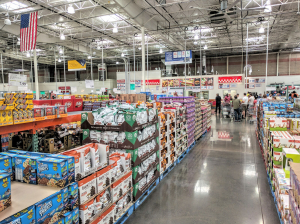
The last war was the asset bubbles of the 1990s and 2000s. The first was in tech. The second was in housing.
Both fell after the bubble hit. Both times the government responded by juicing demand, first with the “forever wars,” then with a domestic stimulus and helicopter money.
Both times, this worked because the problem wasn’t related to what happened during the 1970s. Back then, resource inflation was to be feared. There was no substitute for oil. Now it’s just speculation and its aftermath.
The same kind of blow-off is happening now. There’s a fear that money will cost money, so speculators are pulling back, selling everything else to raise cash. (Cash is doing fine.) So far, it’s not nearly as bad as what came before. But fear is gripping the market because, this time, it’s accompanied by inflation.

Technology can address these problems. It’s already doing it.
Today’s inflation was the product of COVID-19. COVID crushed demand, but in 2021 people began going out again and demand increased faster than supply. This was exacerbated by the continuing impact of COVID on workers, and by demographics. (We’re getting older, and many are retiring.)
It’s a lot like the inventory recessions after World War II. Supply needed time to catch up after demand cuts. But it did. This was an era of enormous prosperity, thanks to the steadily increasing efficiency of manufacturing.
We’re in a different time. It’s technology that calls the productivity tune. As I’ve said here many times, the pace of change under Moore’s Law continuously accelerates. The benefits go partly to consumers, but mostly to stockholders, especially the largest stockholders, the founders and hedge fund managers who sponsor them.

In both cases the answer is the same. Stimulate demand. Create new tasks for the economy and technology will create viable solutions. Create new places to invest and money will get unstuck from wasteful speculation and flow toward what makes money.
For investors, this means you find some time over the next few weeks to buy some stocks. Buy the best companies, those whose sales and profits are growing. They’re cheap. They’re getting cheaper. These are the companies that will solve the inflation problem. Cloud companies, application providers, renewable energy companies, car companies and service companies. Anyone with control over their supply chain.
Productivity and efficiency, driven by Moore’s Law, will answer today’s economic problems. Then we can get back to the political ones.









